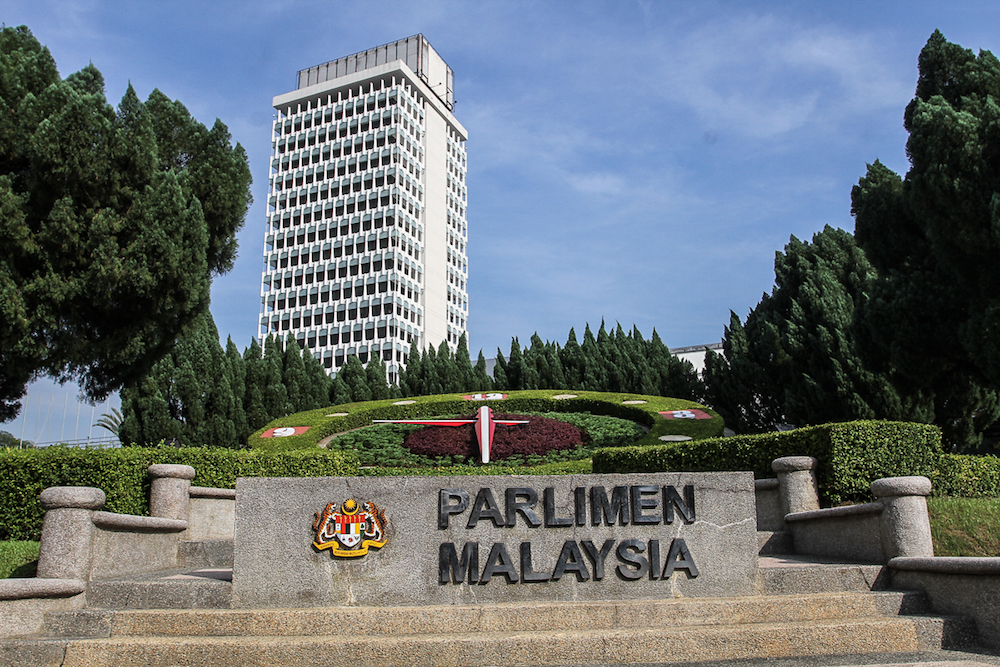KUALA LUMPUR, Feb 25 — The Federal Court has today made it clear that Parliament has primacy when it comes to making laws on criminal offences in Malaysia, lawyers representing a Malaysian Muslim man in the case said.
In a joint statement by lawyers Datuk Malik Imtiaz Sarwar and Surendra Ananth, they noted that the Federal Court’s nine-judge panel chaired by Chief Justice Tun Tengku Maimun Tuan Mat had unanimously ruled in favour of their client by declaring Section 28 of the Shariah Criminal Offences (Selangor) Enactment 1995 as void for being unconstitutional.
Section 28 makes it a Shariah offence for “any person” performing “sexual intercourse against the order of nature with any man, woman or animal”, with the punishment being a maximum fine of RM5,000 or a maximum three-year jail term or a maximum whipping of six strokes or any combination.
The order sought by the man and granted by the Federal Court today is for a declaration that Section 28 is invalid on the grounds that it makes provision with respect to a matter which the Selangor state legislature has no power to make laws on and is therefore null and void.
In this case, a key issue was whether Section 28 was invalid as the Selangor state legislature has no powers to make laws on a matter that falls under the federal government’s powers via Parliament to make laws on instead.
Both Imtiaz and Surendra noted that the Federal Court’s decision today was that the power of state legislatures to make laws on offences against the precepts of Islam is limited to matters that do not fall under Parliament’s powers, and that this was even if Parliament had yet to make such laws.
“The court concluded that under the Constitution, it is Parliament that has primacy over criminal law.
“Though the State Legislative Assemblies can enact offences against the precepts of Islam, that legislative power does not extend to matters that Parliament can make criminal law over under the Federal List.
“This serves to limit the power of the State Legislative Assembly to enact offences against the precepts of Islam. To be clear, that preclusion applies as long as Parliament can make criminal law on the subject and is not confined to where Parliament has made law,” the lawyers explained.
The lawyers were referring to the Federal Constitution’s Ninth Schedule’s List I and List II or the Federal List and State List, which separately list what the federal government via Parliament and state governments via state legislative assemblies can make laws on.
The State List states that state legislative assemblies can make laws on Islamic law, including the “creation and punishment of offences by persons professing the religion of Islam against precepts of that religion, except in regard to matters included in the Federal List”.
The phrase “except in regard to matters included in the Federal List” in the Federal Constitution has been described as a “preclusion clause” in this court case, which in other words acts to exclude state legislatures from making state laws on matters that fall under Parliament’s jurisdiction in the Federal List.
“In this way, the court has clarified that the State Legislative Assembly can only enact purely religious offences. Such offences fall within the jurisdiction of the Shariah courts.
“In this way, the court has addressed the misconception that there are, in effect, two parallel systems of criminal law of equal standing.
“The court has clarified that there is one system of general criminal law, applicable to all persons, and another system of purely religious law in which offences can only relate to matters of religion. This will ensure that the law is applied without discrimination,” the two lawyers further said when explaining the separate grounds of judgment by Chief Justice Tengku Maimun and Chief Judge of Malaya Tan Sri Azahar Mohamed.
Among other things, it was noted by the Federal Court that Parliament had already made laws on the same offence of unnatural sex in Section 28, via provisions such as Sections 377 and Section 377A of the Penal Code which is a federal law.
Among other things, Justice Azahar did not agree that federal and state laws on unnatural sex could co-exist, noting that this was because of the Federal Constitution’s Article 8 which provides for equal protection of the law and non-discrimination against Malaysians.
Justice Azahar had pointed out that Section 28 of the Selangor state law which only applies to Muslims is punishable by a maximum sentence of jail up to three years, fine up to RM5,000, or whipping up to six strokes or any combination, while the Penal Code’s Section 377A is punishable with a maximum jail term of up to 20 years and also fine or whipping.
With Article 8 of the Federal Constitution providing for all persons to be equal before the law and no discrimination against citizens only on grounds such as religion, the judge had said it would be hard to deny that a non-Muslim would be discriminated in such a situation as a Muslim would have the benefit of a lesser sentence for a substantially similar offence.
Justice Azahar said this was among the reasons why he concluded that Section 28 is invalid as it was ultra vires or went beyond the Federal Constitution, noting that the state legislature had no power to make law via Section 28 on the unnatural sex offence and that only Parliament could enact such a law.
A simplified version of what the Federal Court decided today and why it arrived at such a decision can be read here. Both the grounds of judgment by Justice Tengku Maimun and Justice Azahar were fully agreed to by all the other judges on the Federal Court’s nine-member panel.
Other lawyers who represented the Muslim man were Honey Tan Lay Ean and Tay Kit Hoo. The name of the Muslim man is being withheld on the request of his lawyers, who had previously highlighted the risks and danger posed if he was to be named publicly.
Later when asked by Malay Mail on what would happen to the Shariah trial against the Muslim man following the Federal Court’s decision today, Surendra said that the Shariah charge under Section 28 should be dropped by the prosecution.
“Prosecution should now withdraw the charge. As for the judicial review in High Court, we will wait on the status of the charge in the Shariah court,” he said.
In August 2019, the Malaysian Muslim man was charged in the Selangor Shariah High Court under Section 28 of the 1995 Selangor state law read together with Section 52 for attempted offences, where he was alleged to have in November 2018 in a house in Bandar Baru Bangi attempted to commit sexual intercourse against the order of nature with other men. Justice Azahar today noted that the charge sheet had said the other men included three non-Muslims.
Surendra confirmed today that both the Shariah trial and judicial review proceedings have been put on hold while waiting for the Federal Court decision today.
Surendra confirmed that the Shariah trial had yet to start and with only the Shariah charge read out with a plea of not guilty recorded so far.
After the Muslim man was charged with and pleaded not guilty and claimed trial in August 2019 in the Shariah court on the offence of unnatural sex under Section 28, he had filed two separate constitutional challenges in the civil courts to challenge the validity of the Section 28 provision that was used to charge him.
The first challenge filed on November 20, 2019 at the High Court was for leave for judicial review against the Selangor chief Shariah prosecutor and the Selangor government, with several court orders sought including declarations that Section 28 is invalid for going against the Federal Constitution.
As part of the judicial review application, the man had also sought a court order to prohibit the continuing of Shariah proceedings against him; and court orders to quash the decision to charge him in the Shariah court and to quash the Shariah trial against him.
The High Court had in January 2020 granted leave or permission for the judicial review proceeding to be heard, but the High Court has not heard the actual judicial review application yet due to the need to wait for the Federal Court decision.
As for the second challenge which was filed on November 28, 2019 by the Muslim man, he had applied directly to the Federal Court to refer the issue of Section 28’s constitutional validity for the country’s highest court to decide.
The application was made via Article 4(4) of the Federal Constitution, where constitutional challenges against the validity of any laws — on the basis that such laws were made by Parliament or by state legislatures when they had no power to do so or when it does not fall under their respective jurisdictions — can be brought directly to the Federal Court and requires a Federal Court judge’s leave to be heard.
The Federal Court granted leave on May 14, 2020 for the constitutional challenge to be heard, and on December 14, 2020 heard the case, which resulted in today’s decision.


















